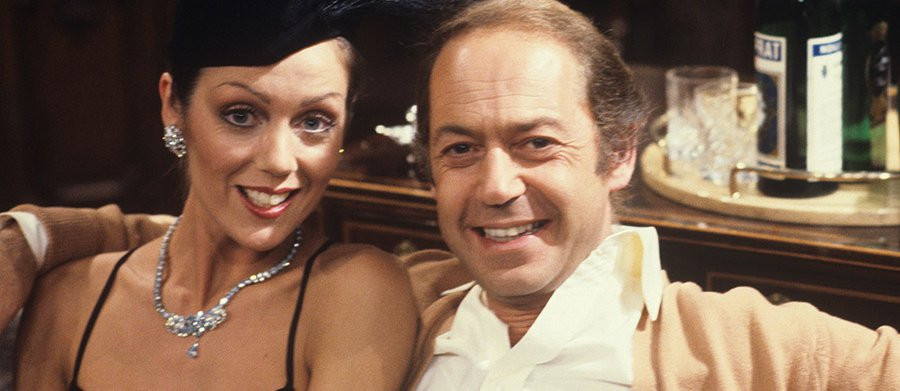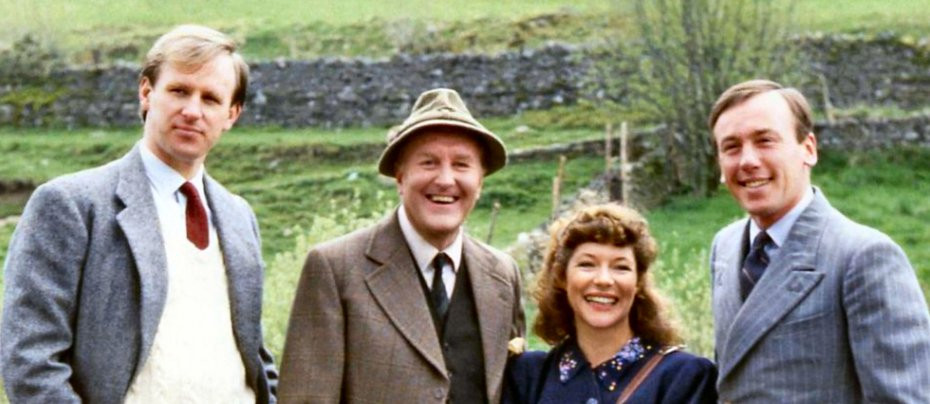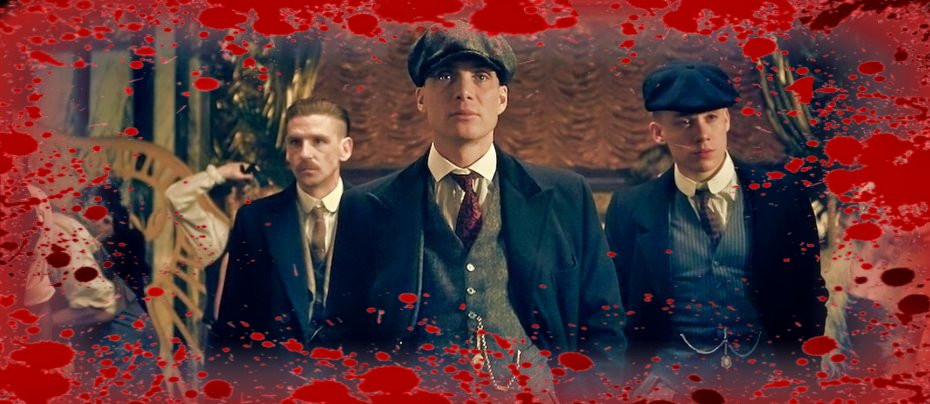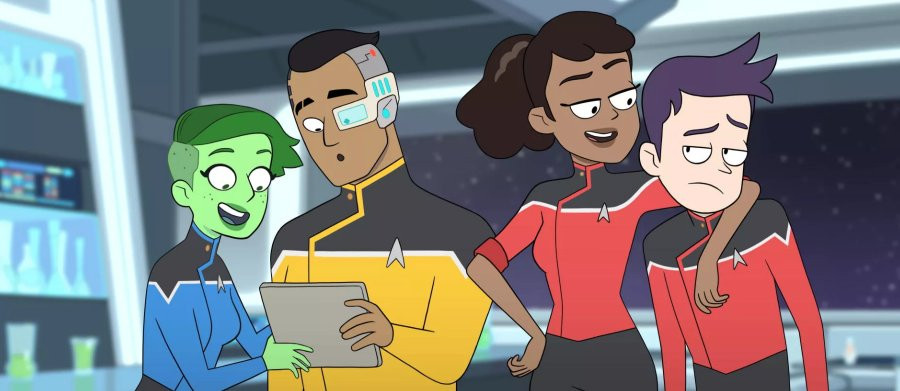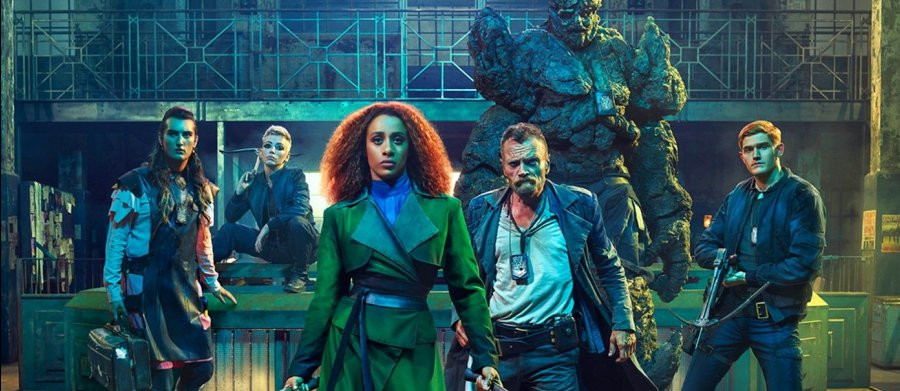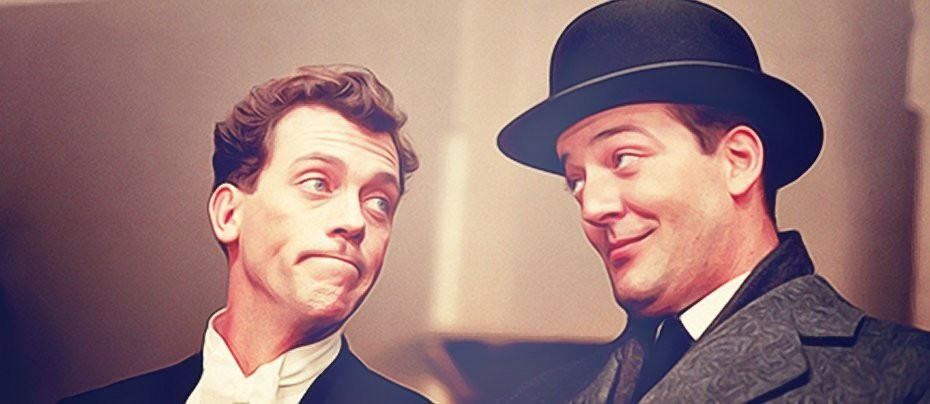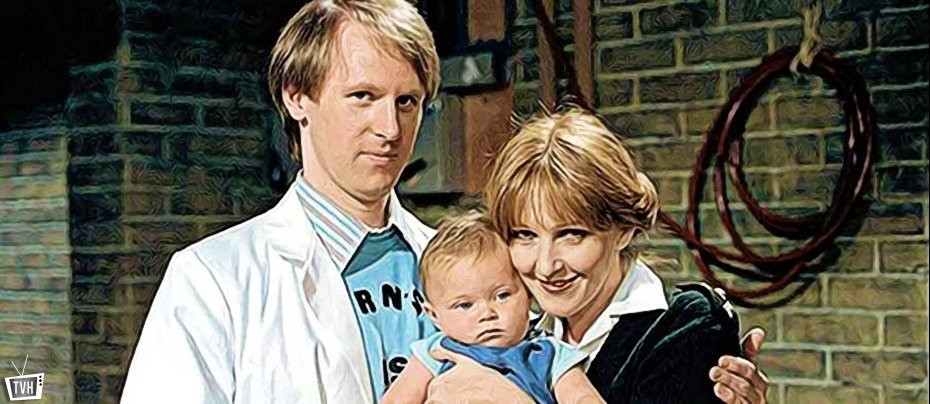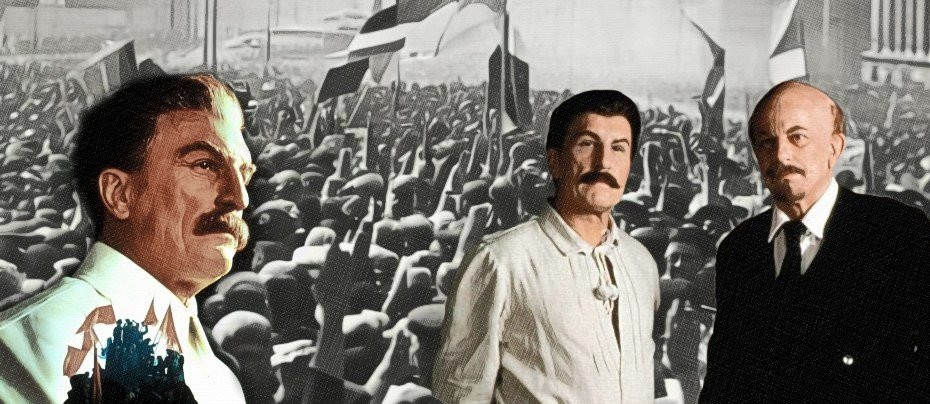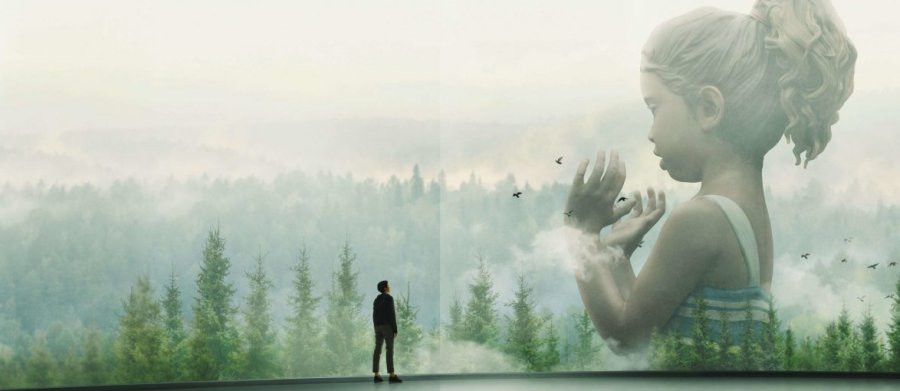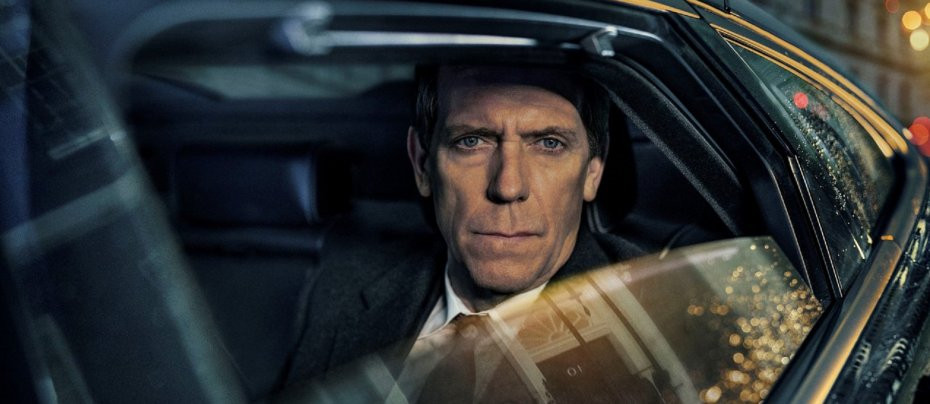
Roadkill
2020 - United Kingdom‘Hugh Laurie succeeds in evoking a sort of qualified sympathy for a character who, objectively, does not deserve it’
Roadkill reviewed by John Winterson Richards
When interviewed actors and directors tend to agree that the script is the most important aspect of any production. It is what attracts them to the project and, to a great extent, it determines the success or failure of their own work. Even the most impressive superstructure cannot hold up without a firm foundation.
The BBC's four-part political drama Roadkill is therefore interesting as an example of a very rare beast: while not exactly impressive, it is nevertheless surprisingly watchable despite being very badly written.
This is doubly surprising because the writer is none other than Sir David Hare, Fellow of the Royal Society of Literature, one of Britain's most prominent stage dramatists. He keeps getting television commissions on the back of this theatrical distinction, but, to be honest, he does not deserve them. Previous Hare prestige projects like The Worricker Trilogy and My Zinc Bed came across as stagy and pretentious on television.
To be fair to Sir David, there are big differences between writing for the stage and for the screen. Theatre has the great advantage of immediacy. It compels attention. The audience is brought almost physically into the production. In return for this the audience is usually able to tolerate a certain degree of artificiality, the necessity of which is theatre's great disadvantage. Shakespeare cleverly "broke the fourth wall" by referring to "the wooden O" directly in Henry V, but theatre depends on the whole audience buying in to a shared illusion while television audiences demand a higher level of realism in drama.
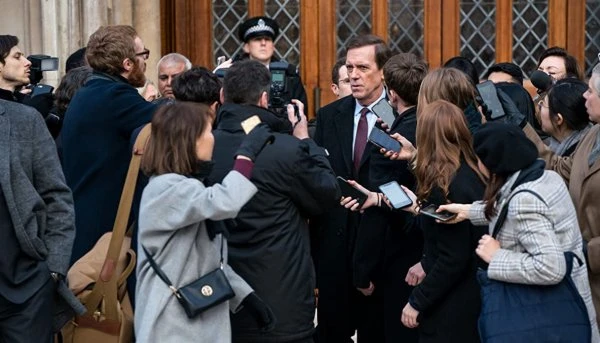
There are now many courses and books for would be television writers, and it is generally accepted that there are certain basic rules: characters must be consistent with themselves; they should not say what they would not say in real life; avoid expositionary dialogue ("show, don't tell"); events must flow naturally. One may be forced to play with these rules in a stage production when a lot of story has to be crammed into two hours, but television offers time and space for a story and its characters to develop, and modern viewers expect television drama to make the most of that.
It seems Hare thought himself too grand for beginners' courses or books or even rules, and Roadkill could serve as an educational video on "How Not to Write Television Political Drama." The Emperor has no clothes.
We get expositionary dialogue by the ton, characters telling each other things they would already know. Even worse is the "on the nose" dialogue from supposed top level lawyers, politicians, and media operators - people who would not be in those positions unless they were experts at leaving things unsaid. In fairness there are some good lines that could be worthy of a dictionary of quotations, but they sound out of place in what is supposed to be casual conversation - the influence of the theatre again. Sir David also deserves credit for giving at least some of his characters interesting and well-constructed back stories, even if the way they come out in dialogue seems contrived and they seem to have little or no influence on the characters' subsequent actions.
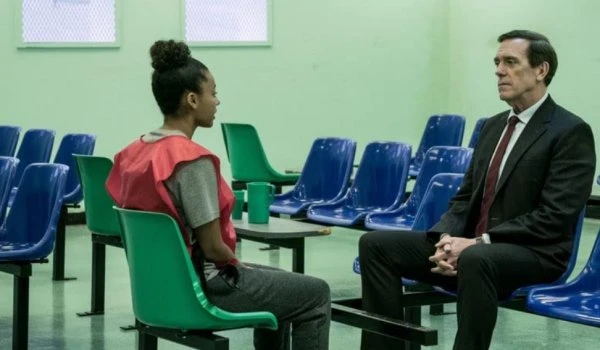
The plotting is even worse than the dialogue and characterisation. Absurdity is piled on absurdity. Is it at all likely that a journalist would be surprised at being fired after losing a libel case because she failed to give evidence to back up her story? Or that the barrister who won that case would have any interest in reinvestigating it? Or that a Minister would visit a prison in person on the off chance he might have a previously unknown illegitimate daughter there? Or that a self-made property millionaire turned leading politician would be so passive in the face of events and such a doormat in his private life? Or that is daughter could be photographed snorting cocaine without consequences? Or that... Well, the list could go on almost to The Lord of the Rings: the Rings of Power length. Suffice it to say there is not a coherent story here, let alone a credible one.
For a man with the reputation of being a political writer, Hare appears to have little knowledge of how politics and politicians actually work. To imagine that three British charity workers being killed by a British made weapon would make much of an impact on public opinion outside Guardian reading circles, let alone trigger a leadership crisis in the Conservative Party, shows a total lack of understanding. That a libel action by a leading Conservative is a major plot point suggests Hare's grasp of current affairs is still stuck in the Nineties. Politicians have moved on from Aitken and Archer, and what was easily exposed then would be foolish even to attempt in the time of CCTV and "smartphones."
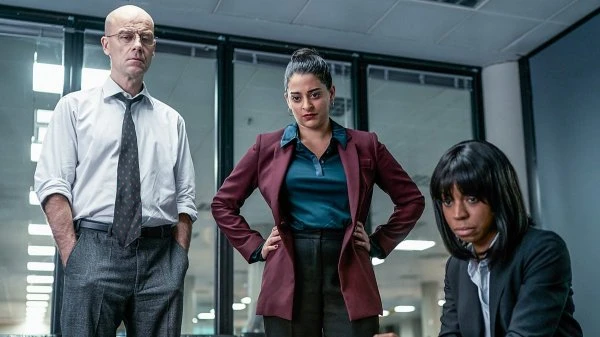
There is nothing wrong with politically committed drama - some of the best writing ever has come from people who wanted to make a point - even if it has become tiresome that on television these days that means by people who come almost exclusively from one side of the political spectrum. Political commitment does not, however, exempt a writer from his obligation to construct authentic and internally consistent characters. The likes of Tolstoy, Dostoyevsky, and Hemingway are often at their best when they bring integrity to characters antagonistic to their own politics. One suspects that Hare, like most current television writers, has few, if any, Conservatives among his closest friends. He clearly has no idea how they think, talk, and act. So half the time he has them indistinguishable from said Guardian readers and the other half they are pantomime villains.
Yet, going back to what was said near the beginning, the whole thing remains oddly compelling. Much of this is due to the well-paced direction by Michael Keillor and good use of location. The haunting music by Harry Escott, oddly reminiscent of Carter Burwell's haunting score for the classic In Bruges, also gives the production an emotional lift the story does not really merit.
However, the main reason to keep watching is the very strong cast, who were presumably attracted by the status attached to the project.
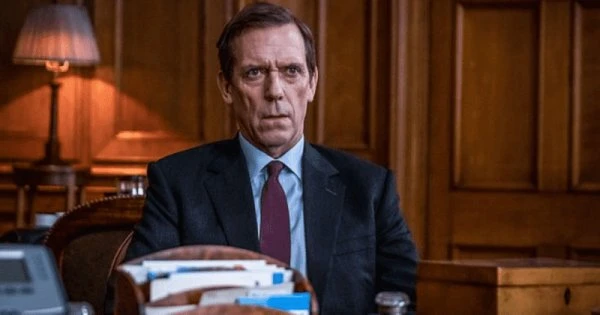
Above all, Hugh Laurie succeeds in evoking a sort of qualified sympathy for a character who, objectively, does not deserve it. For those of us who have been Laurie fans since Blackadder the Third and Jeeves and Wooster, and who still think of him fondly as a loveable comedic actor, it may sometimes be hard to accept that he has since become an even greater dramatic actor. His curriculum vitae is there to prove it.
He must surely be on the waiting list for a Knighthood for Services to the British Export Industry. The Roadkill script gave him the option of playing its anti-hero, the property millionaire Minister, as a charming but basically evil psychopath - something he proved he could do very effectively in The Night Manager. Instead, Laurie gives us a fully rounded human being who, if anything, tries a bit too hard to please everyone around him and who believes sincerely that what he is trying to do is in the public interest. His tragedy is that he honestly thinks that, in spite of all that he does, he is basically a decent man.
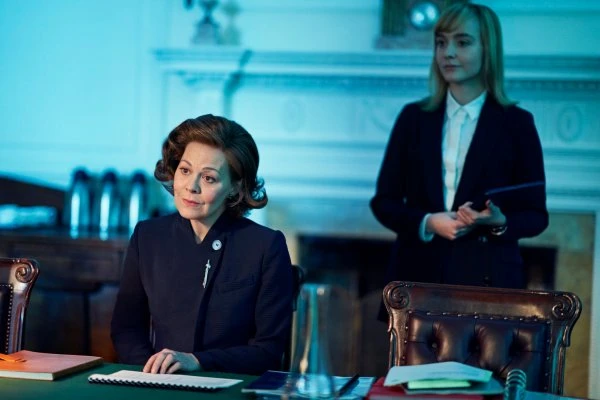
The ever-intriguing Saskia Reeves plays his brittle wife and Sidse Babett Knudsen (Borgen) brings a touch of glamour as his mistress - it is a pity that her story arc turns out to be rather perfunctory. In her last major role, the late, great Helen McCrory is duly authoritative, but her character is written as a sort of cut price, amateurish version of Margaret Thatcher (incidentally, this was two years before Liz Truss became Prime Minister) and is a bit of a wasted opportunity: no one does truly powerful women better than McCrory and it would have great to see her go full Thatcher.
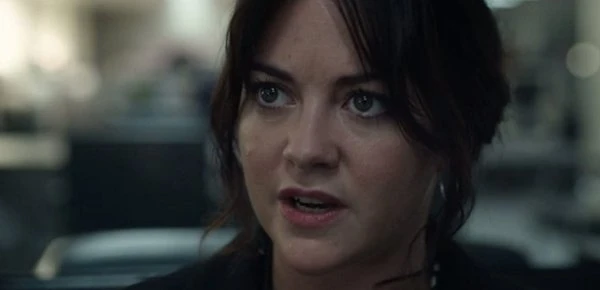
Sarah Greene (Penny Dreadful, Vikings, The Guard) is likeable as a rather naive young journalist, the always enjoyable Pip Torrens (Versailles) is fun as her unreconstructed Editor, and Patricia Hodge (Rumpole of the Bailey, The Falklands Play, Miranda) is stately as ever as his Proprietor who gives him a subtle but firm lesson in the reality of power - if only the rest of the production had been up to the level of this scene.
Iain De Caestecker (Agents of SHIELD) is good as an overambitious "special adviser" who fancies he is playing his own hand but is not as clever as he thinks. Sylvestra Le Touzel convinces as a Permanent Secretary in the tradition of Sir Humphrey Appleby. Nicholas Rowe as the Chairman of the Conservative Party and Guy Henry (Hanssen from Holby City) and the Chairman of a British arms manufacturers group are conspirators in the grand theatrical style.
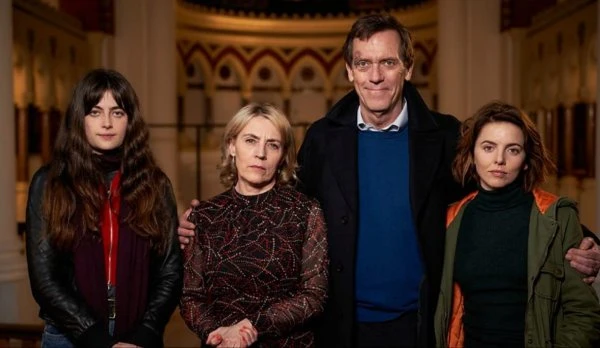
If Millie Brady (The Last Kingdom) and Ophelia Lovibond (W1A, Guardians of the Galaxy) strike false notes as the Laurie character's daughters, it is not their fault - it is simply too hard to see why he would be so tolerant of such entitled, self-righteous overgrown brats. Whether Hare actually intended them to come across that way is not certain. Perhaps he thought they would serve as the voice of the younger generation. If so, what they say about the younger generation is not flattering.
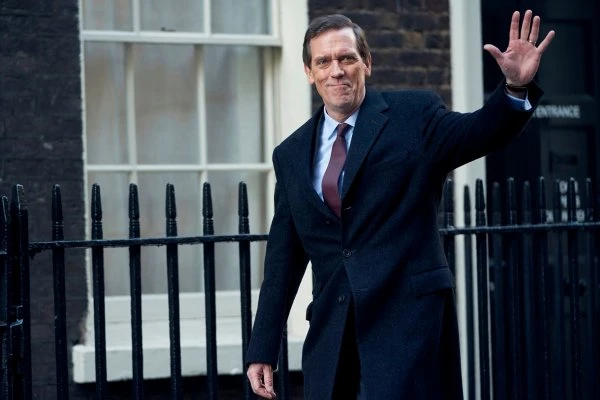
Overall Roadkill is a testimony to the current strength in depth of the British acting profession, but also to the weakness of British scriptwriting - in large part because the commissions are being given to the well-connected rather than to new talent with something fresh to offer.
Published on December 29th, 2022. Written by John Winterson Richards for Television Heaven.


